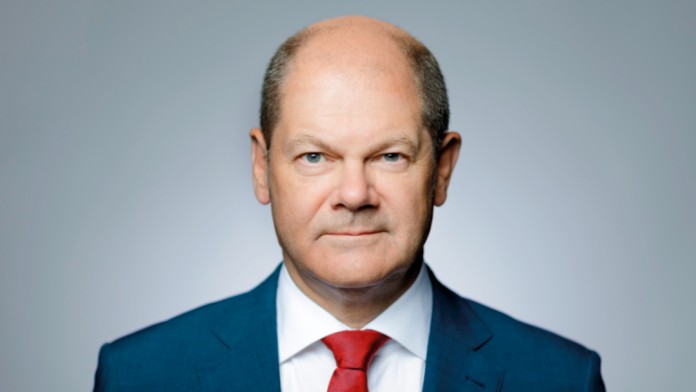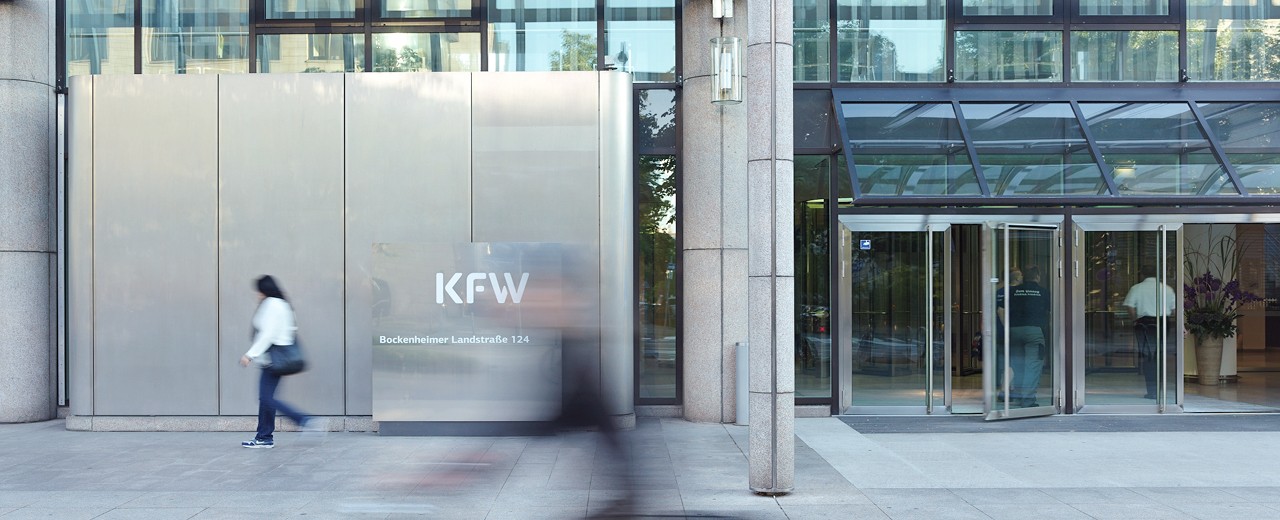Report of the Board of Supervisory Directors
Meetings of the Board of Supervisory Directors
The Board of Supervisory Directors and its committees constantly monitored the conduct of KfW's business activities and the management of its assets. It has taken the necessary decisions on the provision of financing and the conduct of other business in accordance with the conditions set forth in the KfW Law and Bylaws. The Board of Supervisory Directors, the Presidial and Nomination Committee, and the Remuneration Committee each met three times in 2020 for this purpose; the Audit Committee four times and the Risk and Credit Committee seven times – primarily virtually in the form of conference calls and video conferences due to the pandemic.

At the meetings, the Board of Supervisory Directors acknowledged the information provided by the Executive Board on:
- KfW's 2019 annual and consolidated financial statements;
- the business activities and current developments in each of KfW’s business sectors, including KfW IPEX-Bank GmbH, DEG and KfW Capital;
- the group’s net assets, its general financial, earnings and risk position, and on sensitive risk areas in particular;
- banking supervisory issues relating to KfW, current consultations with the banking supervisory authorities, compliance with regulatory capital requirements, audits completed and ongoing and the resulting measures, as well as potential effects of future regulatory changes;
- the Climate action campaign for SMEs launched together with the Federal Ministry for Economic Affairs and Energy (“BMWi”);
- the status of creation of a fund for forward-looking technologies;
- the further development of KfW as a transformative promotional bank for a net-zero greenhouse gas future;
- KfW's digital agenda and its role in promoting digitalisation as well as supporting and shaping digital structural change; and
- the impact of the coronavirus and the steps taken under KfW coronavirus aid.
In addition, the Board of Supervisory Directors addressed the following key issues based on the reports submitted by the Executive Board on the individual business sectors:
- As regards domestic promotional business activities, the introduction of the special programme for coronavirus aid was a key factor in limiting the negative financial impact of the pandemic. The financing offers guaranteed by the Federal Government, some with full exemption from liability, reached the various target groups, but in particular SMEs. In addition to the development and take-up of these financing offers, the Board of Supervisory Directors was also informed about the expansion of promotion for start-ups and attractive terms for student loans.
- With a view to the business sector Promotion of developing countries and emerging economies, the Board of Supervisory Directors discussed key issues of Financial Cooperation including KfW's commitment in Africa and the pandemic-related promotional programmes of the Federal Ministry for Economic Cooperation and Development (“BMZ”).
- As for KfW IPEXBank GmbH, i.e. the Export and project finance business sector, the focus was on the support the bank provides to German and European investors and exporters, and the effects of the pandemic, e. g. due to forbearance measures.
- The Board of Supervisory Directors received regular reports on capital market development and KfW’s funding status. KfW's funding on the capital market was optimised in mid-2020 via new sources of funding, such as the Economic Stabilisation Fund (“WSF”) in particular, but also the targeted longer-term refinancing operations (“TLTRO III”) through the Bundesbank.
- The Board of Supervisory Directors also monitored KfW Group's environmental and sustainability commitment and was informed about the sustainable finance concept, which involves inclusion of the objective of transforming the economy and society to improve economic, environmental and social living conditions around the globe in KfW's strategic target system.
The Board of Supervisory Directors was informed at the meetings as well as quarterly, in writing, of the group’s net assets, financial, earnings and risk position, the development of its promotional business, and Internal Auditing's activity. The Executive Board also kept the Chair of the Board of Supervisory Directors and his deputy informed of key developments at the bank between meetings.
The Board of Supervisory Directors discussed key aspects of the business strategy and approved the planning for 2021. It acknowledged the multi-year business strategy, the risk strategy, and the IT strategies for the group and the individual group companies.
The Board of Supervisory Directors also resolved a modernisation of the KfW Bylaws to promote digital business processes.
Each member of the Board of Supervisory Directors is obliged to inform the Chair of the Board of Supervisory Directors or the relevant committee about potential conflicts of interest before a resolution is made.
No members of the Board of Supervisory Directors attended fewer than half of the board meetings in the reporting year. The same applies to the Presidial and Nomination Committee, the Remuneration Committee, the Audit Committee and the Risk and Credit Committee.
Members of the Board of Supervisory Directors attended three training events and four individual training sessions in 2020 to gain and maintain the expertise required in accordance with the German Banking Act.
Committees of the Board of Supervisory Directors
In exercising its responsibilities prescribed in the Bylaws, the Presidial and Nomination Committee discussed Executive Board matters, in particular filling vacant positions, resolved an adjustment to the remuneration of the Executive Board, updated job descriptions for Executive Board roles and a temporary redistribution of responsibilities due to the international finance vacancy on the Executive Board since the beginning of November. It also resolved further steps regarding the investment fund for forward-looking technologies and strategic guidelines for 2021, relating to the implementation of KfW’s basic business policy.
It was also informed about banking supervisory issues, KfW Stiftung and legal disputes. It conducted an evaluation of the KfW bodies, making relevant recommendations to the Board of Supervisory Directors.
The Remuneration Committee discussed remuneration issues and the reports in accordance with the Remuneration Ordinance for Institutions (Institutsvergütungsverordnung - “IVV”). It was informed of the annual risk analysis to identify risk takers. As part of this risk analysis, KfW, both as an individual institution and at group level, has to identify staff members whose work could have a material impact on the risk profile of the institution/the group. It reviewed and confirmed the appropriateness of the Executive Board members' remuneration. The group-wide remuneration strategy and the assessment base for variable employee remuneration were also discussed.
The Risk and Credit Committee reviewed the commitments, equity investments, and loans to members of executive bodies that must be presented to it under the KfW Law and KfW Bylaws, as well as the scope of borrowings required by KfW for its funding, and the related swap transactions necessary for hedging, and addressed the risk situation and the effectiveness of the risk management system. It also dealt with KfW's exposure in various countries, regions and sectors, the development and assessment of political risks in relevant areas of activity, measures to further develop the risk culture, details of stress testing and market price risks, including further development of their measurement, the potential effects of regulatory measures currently under discussion, the risk profile of financing in certain sectors, and the remuneration system, with a particular focus on the IVV. The report on shadow banks initiated an in-depth discussion on the topic. The current coronavirus developments and their effects on KfW's risk situation were also addressed in detail. The regulatory capital requirements of KfW, in particular the requirements under Basel IV were also repeatedly discussed. And lastly, the committee discussed the risk strategy, including capital planning for the next few financial years.
The Audit Committee addressed the accounting process, KfW's net assets, financial and earnings position, the reports by Internal Auditing and Compliance and the annual financial statements of KfW Group 2019. It made corresponding recommendations to the Board of Supervisory Directors for the approval of the annual financial statements 2019 and the appointment of the auditor for 2021. The committee monitored the public call for tender of the framework agreement for the audit of KfW Group and its companies for financial years 2022 to 2025, with an option to extend for financial year 2026. Based on information supplied by the Executive Board, it evaluated the efficiency of the risk management system, the internal control system (ICS) and the internal audit system. In addition, it addressed auditor independence, determined focal points of the 2020 financial statements audit and discussed the initial results of the 2020 financial statements audit (audit report part I). The committee approved the audit plan of the Internal Auditing department for 2021. It monitored banking supervisory issues and closely reviewed the banking supervisory assessments, along with the resulting measures and projects to remedy the findings..
The committee chairpersons reported to the Board of Supervisory Directors regularly on the work of the committees.
Changes on the boards
Prof. Dr Nagel stepped down from the Executive Board at his own request with effect from 31 October 2020. The Board of Supervisory Directors would like to thank him for his commitment to the role.
In accordance with Article 7 (1) no. 1 of the KfW Law, in my capacity as Federal Minister of Finance, I assumed the Chair of the Board of Supervisory Directors for 2021 from my colleague Peter Altmaier, Federal Minister for Economic Affairs and Energy.
Dr André Berghegger, Ingeborg Esser, Albert Füracker, Johannes Kahrs and Alois Karl joined the Board of Supervisory Directors with effect from 1 January 2020. Dr Florian Toncar resigned from the Board of Supervisory Directors with effect from 31 March 2020, and Michael Theurer was appointed with effect from 1 April 2020. Prof. Dr Johannes-Jörg Riegler stepped down with effect from the end of 2020. The Board of Supervisory Directors would like to thank the members stepping down for their work.
The following members stepped down with effect from 31 December 2020 and were reappointed according to schedule: Dr Bruno Hollnagel and Michael Theurer (each with effect from 1 January 2021), Robert Feiger, Reiner Hoffmann, Stefan Körzell, Dr Joachim Lang, Dr Hans-Walter Peters and Helmut Schleweis (each with effect from 6 January 2021 after the reporting period). Rainer Neske also joined the Board of Supervisory Directors after the reporting period with effect from 6 January 2021.
Annual financial statements
Ernst & Young GmbH, which was appointed auditor for financial year 2020, has audited the annual financial statements and the management report of KfW as well as the consolidated financial statements and the group management report of KfW Group, all of which were prepared as of 31 December 2020 by the Executive Board, and issued an unqualified auditor's report thereon. The financial statements and the management report were prepared in accordance with the provisions of the German Commercial Code (HGB) and the consolidated financial statements and the group management report were prepared in accordance with International Financial Reporting Standards (IFRS) as applicable within the European Union.
At its meeting on 24 March 2021, the Board of Supervisory Directors approved the financial statements and the consolidated financial statements, both of which were prepared by the Executive Board, as stipulated in Article 9 (2) of the KfW Law, following a recommendation by the Audit Committee.
Frankfurt am Main, 24 March 2021
The board of supervisory directors
Chair
Legal notice:
The information contained in this online Annual Report 2020 is based on KfW’s Financial Report 2020, which you can download here. Should this online Annual Report 2020, despite the great care taken in preparation of its content, contain any contradictions or errors compared to the Financial Report, the KfW Financial Report 2020 takes priority.


Share page
To share the content of this page with your network, click on one of the icons below.
Note on data protection: When you share content, your personal data is transferred to the selected network.
Data protection
Alternatively, you can also copy the short link: https://www.kfw.de/s/enkBdJnd
Copy link Link copied